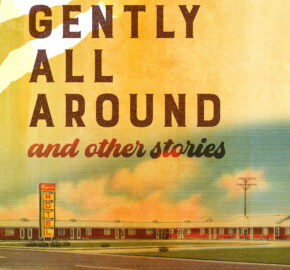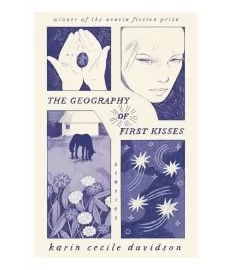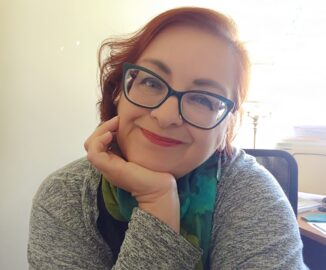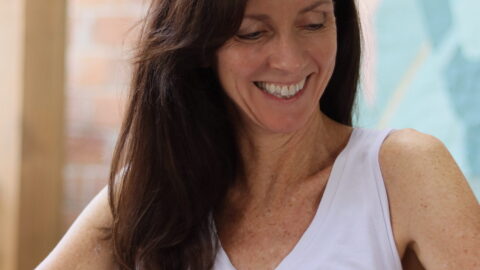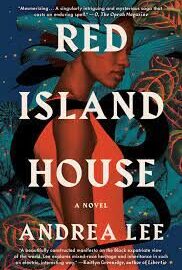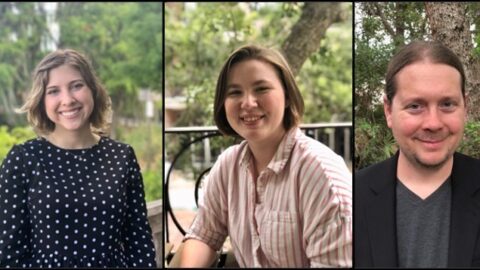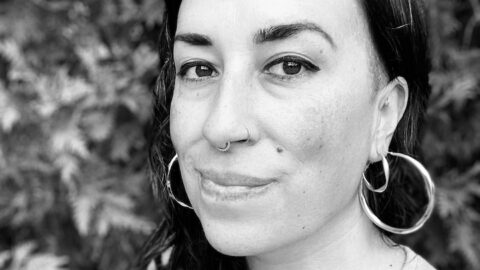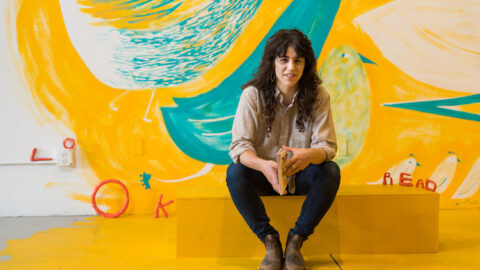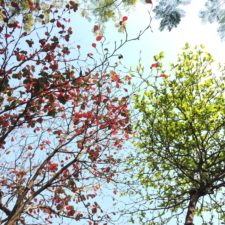Words So Odd and Ordered: An Interview with Karin Cecile Davidson
Flash • Flux
Fiction • Kaitlin Murphy-Knudsen
Visual Arts • Nova
Poetry • Shoals Suite
Interviews • Andrea Lee
Fiction • Flor
Flash • Pinprick
Interviews • heidi andrea restrepo rhodes and Ae Hee Lee
Interviews • Claire Oleson
Transgressions of Place in Poetry: Eiríkur Örn Norðdahl Talks Translation
Eiríkur Örn Norðdahl is an award-winning Icelandic writer and translator based in Ísafjörður, Iceland. Long noted as an experimental poet, he has become one of Iceland’s foremost prose writers, and has translated over a dozen books into
Prism of Poetry: An Interview with Illustrator and Designer LK James
Naming Exile: an interview with Kaveh Bassiri
“Saraswati Takes Back the Alphabet”: An Interview with Shilpa Kamat
I was driven by the forces that create and break language: sound, migration, immigration, alienation, speech, accent, imperialism, place, longing, myth, consciousness, archetype, universality, magic.” – Shilpa Kamat, “Saraswati Takes Back the Alphabet”
Poet, visual artist, and educator Shilpa Kamat contends with the violent legacies of imperialism, her lived experience, language, and threats of erasure in her chapbook, “Saraswati Takes Back the Alphabet,” finalist for the 2018 Anzaldúa Poetry Prize. In “eleven,” mid-way through the chapbook, Kamat writes, “the demons were never/ evil just regular/ people who prayed.”
The content of Kamat’s life—the experience of thinking across multiple languages, and being rooted in a particular lineage, Konkani, while having grown up elsewhere—is woven into the chapbook. She is concerned with nuance and layers, integrating her fascinations with magic and the sociopolitical without oversimplifying the past. Kamat is committed to exploring where magic still resides despite every violent attempt to erase it.
“French Braid”: An Interview with Rennie Ament
Part instruction manual for living, part mourning song and meditation on America, Rennie Ament’s aptly titled chapbook, “French Braid,” weaves stories of being both at home and not at home in the world. The 2018 Anzaldúa Poetry Prize finalist braids lived experiences with the absurd, painting strikingly vivid, arresting scenes that rouse readers’ emotions and intellect. As she writes, “you have to be the explosion you wish to see,” and her poetry is precisely that: an explosion that we all need to see.
Rennie Ament’s work has appeared in Colorado Review, Sixth Finch, Redivider, Yalobusha Review, minnesota review, The Journal, DIAGRAM, and elsewhere. She is the winner of the 2018 Yellowwood Prize in Poetry from Yalobusha Review and a nominee for both the Pushcart Prize and Best New Poets. She’s also received fellowships from the Millay Colony, the Saltonstall Foundation, the New York State Summer Writers Institute and the Vermont Studio Center. She lives in New York City.
Jamie Wagman: I would love to hear a bit about your writing life and your process. What’s influenced your writing? When did you first know you were a writer, and what has your journey as a writer been like? What delights and what scares you most as a writer?
Rennie Ament: Poem-wise, I don’t pay attention to semantics at first. I’ll give myself some kind of formal constraint (a sonnet, “e” the only vowel allowed, words can only come from a specific source text), but mostly I want to play in language and surprise myself. It’s fun to scribble gibberish until something sounds both strange and true.
Money and Pride Reveal Who We Are
“You know, some people here were willing to pay for that kind of service, but a lot of people have the money but don’t want to spend it.” He looks at me, pointing his finger and nodding slightly. “I think it’s just a matter of personality. Truly, I do.”
I smile in response, looking down at my hands as I dry them. It doesn’t take but one glance around the building surrounding us to know that money is a stark marker between types of people. “I think you’re right, it does depend on personality.”
As he walks away, I think about all the times I’ve seen him striding around the dealership lot, always with a purpose. The fine lines around his eyes and the slightly hunched-over posture belies a tired soul. Yet, though another of my coworkers dismisses his abilities—due to his age, of course—but I’m not so quick to judge. I find that the most capable of us out there are more comfortable away from the spotlight, the responsibilities, and even the big money.
Who Do You Work For?
“Gone are the days of walking into a business and going, ‘Here’s what I can do for you, let’s talk, hire me,’” he says, and the more I think about it, the more I agree. An inbox folder full of application confirmations (and rejections) isn’t the only evidence I have that obtaining a job isn’t as easy as it used to be.
Change is Coming and That’s Okay
“I am somewhere I don’t wanna be,” is a lyric from the Tool song “Pushit” that’s been stuck in my head for quite some time. I always loved Tool, but the lyric just hit me and stayed.
All Souls Day: Putting a Beloved Pet to Rest
On the fourth day, the rain ceased. I like to think the world wept for him, and yet when it was time, a sense of peace came about, as if to comfort me. That didn’t make the decision any easier.
Local Magic and Poetry in Noor Al-Samarrai’s “El Cerrito”
Noor Al-Samarrai’s debut poetry collection, “El Cerrito” (Inside the Castle, 2018) documents the wanderings and explorations of its narrator as she travels the suburbs of El Cerrito, California. Formally, the project is split into two major components: the poems themselves and the extensive footnotes which document the historical and personal references made throughout the book.

